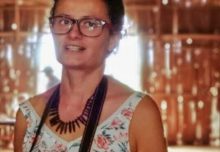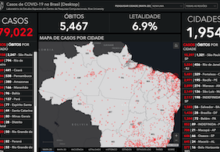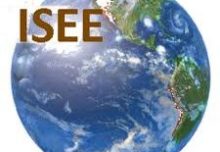 International Meeting for Intercultural Collaborative Research in Atalaya, Peru
International Meeting for Intercultural Collaborative Research in Atalaya, Peru
Universidad Católica Sedes Sapientiae-NOPOKI, Atalaya, July 13-17, 2017
This workshop on intercultural collaborative research, occurring just prior to the 2017 SALSA conference in Lima, will bring together experienced anthropologists, indigenous collaborators, indigenous university students and representatives of Atalaya’s Association of Interculturality for three days on the campus of the bilingual and indigenous branch of Universidad Católica Sedes Sapientiae-NOPOKI, located in the provincial capital of Atalaya in the Region of Ucayali, Peruvian Amazonia.
The workshop will bring these diverse people together in a setting specifically designed for reflection, symmetrical engagement and collaboration to explore the productive potential of conjoining these approaches with the objective of building a collaborative research agenda with wider comparative value. The main themes we will discuss are:
(1) the significance of previous ethnographic encounters from the perspective of anthropologists and their indigenous hosts/interlocutors;
(2) the impacts of anthropological research and practical engagement on contemporary life, with a specific focus on the creation of Native Communities;
(3) ongoing research by indigenous students from NOPOKI in their own home communities. The program for the event is built around both scholarly and indigenous forms of communal assembly and discussion.
NOPOKI focuses explicitly on intercultural (indigenous) education, offers classes in indigenous languages, does not charge indigenous people tuition, and has a student body representing one third of the recognized indigenous peoples in Peruvian Amazonia. Many of the students at NOPOKI belong to Peoples with whom our participants have worked, including Amahuaca, Asháninka, Ashéninka, Cashinahua, Shipibo-Konibo-Shetebo, Matsigenka, Yanesha, and Yine. Furthermore, many of these students do research in their home communities, which offers great potential for collaborative work and co-theorization.
If you are interested in attending the event, then please contact j.sarmiento@cgiar.org. We will not be able to offer financial support for those coming from outside of Peru, but given the relatively remote location of the workshop we will be coordinating logistics for additional people, so please let us know as soon as possible if you are thinking of attending.
Organisers – Peter Gow, Christopher Hewlett, Evan Killick, Giancarlo Rolando, Juan Pablo Sarmiento Barletti, Andrea Vasquez, and Juan Rubén Ruiz Zevallos.
Sponsors – Asociación Intercultural de Atalaya (AIA), Society for the Anthropology of Lowland South America (SALSA), Universidad Católica Sedes Sapientiae-NOPOKI, University of St Andrews Centre for Amerindian, Latin American and Caribbean Studies & University of Sussex, The Wenner-Gren Foundation.
(Photo: G.H. Shepard Jr.)
Encuentro Internacional de Investigacion Colaborativa Intercultural
Universidad Católica Sedes Sapientiae-NOPOKI, Atalaya, 14-18 de Julio, 2017
Este taller programado justo antes del inicio del congreso de la SALSA en Lima reunirá durante tres días a antropólogos experimentados con colaboradores indígenas, estudiantes universitarios indígenas y representantes de la Asociación Intercultural de Atalaya. El evento tendrá lugar en el campus de la sede bilingüe e indígena de la Universidad Católica Sedes Sapientiae-NOPOKI, ubicada en la capital de la provincia de Atalaya, en la región Ucayali de la Amazonía Peruana.
El taller reunirá a este grupo diverso de gente en un ambiente específicamente pensado para la reflexión, interacción simétrica y colaboración para explorar el potencial productivo de reunir estas perspectivas, con la finalidad de construir una agenda de investigación colaborativa con un mayor valor comparativo. Los principales temas a discutir son:
- La importancia de encuentros etnográficos previos desde la perspectiva de antropólogos y sus anfitriones/interlocutores indígenas.
- Los impactos de la investigación antropológica, así como interacciones prácticas con la vida contemporánea, con énfasis particular en la creación de comunidades nativas.
- Investigaciones en curso de los estudiantes de NOPOKI en sus comunidades de origen. El programa de este taller ha sido desarrollado en torno a formas de asamblea comunal y discusión tanto indígenas como académicas.
NOPOKI se enfoca explícitamente en la educación intercultural (indígena), ofrece clases en lenguas indígenas, no cobra derechos de matrícula o pensión a los estudiantes indígenas y tiene dentro de su cuerpo estudiantil a representantes de un tercio de los Pueblos Indígenas reconocidos en la Amazonía Peruana. Muchos de los estudiantes en NOPOKI pertenecen a Pueblos con los cuales nuestros participantes han trabajado, incluyendo: Amahuaca, Asháninka, Ashéninka, Cashinahua, Shipibo-Konibo-Shetebo, Matsigenka, Yanesha y Yine. Del mismo modo, muchos de estos estudiantes realizan investigaciones en sus propias comunidades, lo cual genera un gran potencial para el trabajo colaborativo y la co-teorización.
Si tiene interés en asistir a este evento, por favor póngase en contacto con j.sarmiento@cgiar.org. No podremos ofrecer apoyo financiero con viajes desde el extranjero; sin embargo, dada la relativamente remota ubicación en la cual se realizará el evento, vamos a realizar las coordinaciones logísticas para todos los participantes, así que por favor déjenos saber si están considerando participar a la brevedad posible.
Organizadores – Peter Gow, Christopher Hewlett, Evan Killick, Giancarlo Rolando, Juan Pablo Sarmiento Barletti, Andrea Vasquez y Juan Rubén Ruiz Zevallos.
Patrocinadores – Asociación Intercultural de Atalaya (AIA), Sociedad para la Antropología de las Tierras Bajas Sudamericanas (SALSA), Universidad Católica Sedes Sapientiae-NOPOKI, University of St. Andrews Centre for Amerindian, Latin American and Caribbean Studies & University of Sussex, Fundación Wenner-Gren.
(Foto: G.H. Shepard Jr.)
Check more Calls for Papers!










